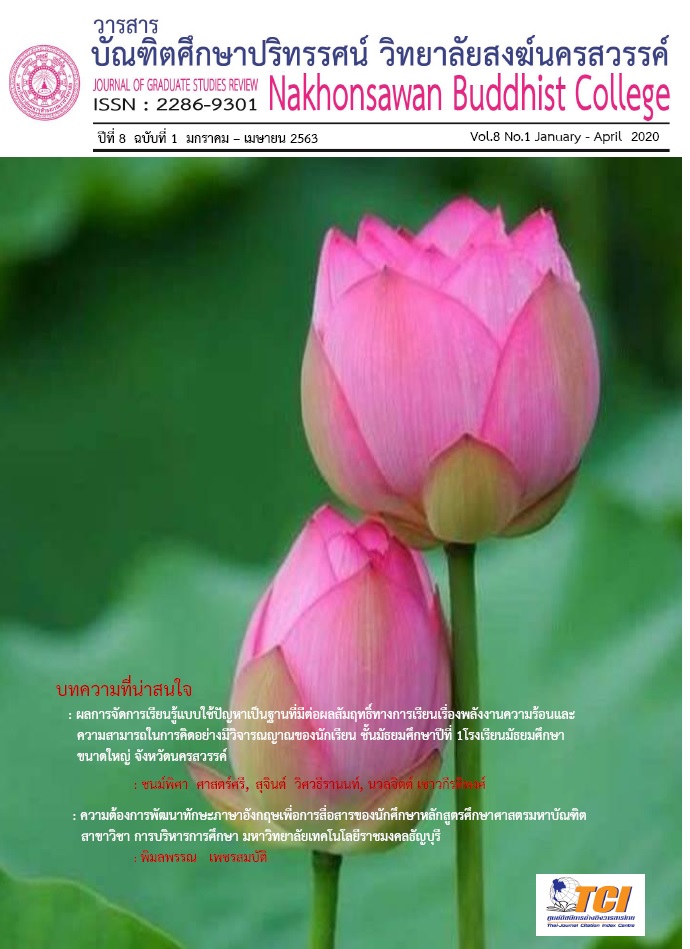Differences between Wisdom in Buddhism and Cognitivist In Western Philosophy
Main Article Content
Abstract
This academic article discusses differences between wisdom in Buddhism and cognitivist in western philosophy. Wisdom in Buddhism is mental factors of wisdom. It means insight or knowledge arising from developed wisdom in which the practitioners in accordance with the Four Foundations of Mindfulness, and advanced level of insight meditation will occur in order from advanced level first of insight meditation to advanced level sixteenth of insight meditation. The characteristics of mental factors of wisdom are: 1. direct knowledge of truth and goodness both conventional truth and ultimate truth. 2. the duty to leave the roots of all unwholesome deeds. 3. the manner is that there is no straying from reality. 4. close proximity is to have concentration. As for cognitivist means knowledge and truth which comes from the end of doubt relating to matter or mind. Their characteristics are knowledge that is true from the ordinary truth to the highest level of truth covering whole the universe. It is goodness from ordinary goodness level to the highest level of goodness covering whole the universe. It is beauty from ordinary beauty to the highest level of beauty covering whole the universe. It is the purity of the mind from the purity of the ordinary mind to the highest level of human purity mind. The differences between wisdom in Buddhism and cognitivist in western philosophy: wisdom in Buddhism is knowledge of the truth, including knowledge of the Four Noble Truths, and the Three characteristics etc.; as for cognitivist in western philosophy, it is the knowledge and truth that comes after the end of doubt.


